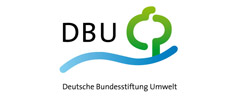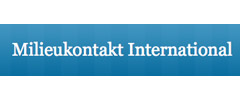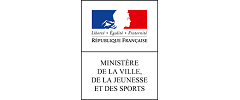Workshop on Green Technologies: Empowering Women in Bharatpur-Rajasthan, India
Georgians, Kyrgyz and Ugandan NGOs learn from Indian NGOs
05.02.2014 |Claudia Wendland
Empowering women by giving them access to Green Technologies
The technologies included biogas plants, solar dryers, water harvesting tanks, solar water heaters and composting baskets. Others were the poly green house, low cost toilets and charcoal briquettes. The technologies were developed over time in a participatory way with Indian experts and communities, all the technologies are culturally appropriate to the community and used locally available materials particularly bamboo to make them cheaper and accessible to the poor households. What is particularly innovative that the rural women are trained and in charge of weaving the bamboo structure for the biogas digester and are thus involved already in the construction which is usually a men´s domain.

biogas lamp
During the workshop, all technologies were constructed on-site, with participants contributing and learning from each stage of the construction. Here a short explanation of the most relevant technologies:Biogas technology
The biogas technology is a low cost fixed dome biogas plant based on a bamboo reinforced cement structure and is called “Grameen Bandhu Biogas Technology” which means “friend of rural people”. Construction of a digester involves excavation of a pit into which two separate halves of baskets weaved using bamboo are fitted. Together, when fitted, the two halves form an egg-like shape. An inlet pipe is connected to the joined baskets. The inlet pipe brings in sludge (cow dung with water) from the mixing tank. An outlet chamber is connected to drain digested sludge which is used as organic fertilizer in agriculture.
More information about design, construction and operation of the Grameen Bandhu Biogas Technology and also the other technologies you can find in the manual.
Solar water heater: The water heater is primarily made up of bamboo covered with black and transparent polyethylene to maximise energy absorption from the sun.
A bamboo frame with four poles is constructed and covered with black and clear polyethylene. A small vent is fitted at the top of the heater using plastic mesh and a plastic flap attached to it for protection against rain. The cone is then placed at an appropriate angle to absorb heat from the sun. A bucket or jerry-can of water is placed inside the heater with a black cover. After a period of about 5 hours, the water is heated to approximately 65°Celsius and is ready for use.
Solar Dryer
The solar dryer is used for drying fruit, vegetables, herbs and spices in a safe and hygienic way. A bamboo frame with four poles is constructed and three or four shelves fitted with bamboo strips bent into hoops. Half of the cone is covered with black plastic while the other half is covered with transparent plastic. Plastic mesh is inserted on top of the cone for ventilation and a plastic flap fitted to protect the fruit or vegetables from rain. After a period of approximately 12 hours of continuous sunlight or more depending on the type of fruit or vegetables, the dried product are ready for storage.

Water Harvesting Tank
The water tanks are constructed using bamboo and cement. Measurements are done and bamboo baskets with a maximum capacity of 10,000 litres are woven. These baskets are placed on a concrete base and are reinforced with cement and sand to serve as durable water tanks. The top covers of the tanks are also made of bamboo. The water into these tanks is usually collected from roof tops using gutters.
All participants appreciated the workshop and the excellent organization by WAFD and INSEDA and are planning to adapt and introduce the learnt technologies into their own settings, communities and spread the information into their networks. Especially acknowledged was the appropriateness to rural communities and the involvement of women.

Participants in the workshop:
From Georgia: Narine Ginosian (Paros); Rostom Gamisonia (RCDA)
From Kyrgyzstan: Tynar Musabaev (CAAW); Zaiida Kudaiberdieva and Muharam Tilavaldieva (MehrShavkat)
From Uganda: Elizabeth Nakiboneka and Susanne Muwazi (ARUWE)
From Germany: Claudia Wendland (WECF)
The workshop was organized by WAFD and INSEDA:
Women’s Action for Development (WAFD)WAFD is a women empowerment organisation that focuses on community-centred poverty reduction in rural India. In addition to integrating renewable energy in all the social – economic developmental programmes, WAFD facilitates micro-credit activities and promotes kitchen gardening among women.Website: http://wafdindia.org/
Integrated Sustainable Energy and Ecological Development Association (INSEDA) INSEDA is a non-profit organisation that focuses on poverty reduction through promotion of renewable energy programmes with special emphasis on the implementation of biogas development in the rural communities of India.
Related News
Congratulations Sascha!
Named thirty-third most influential sustainability fighter in the Netherlands
08.10.2018
Priority Actions to Increase Access to Climate Finance for Non-State Actors
SB48 side event: 7 May 2018 at 16:45 CEST in room 181, UNFCCC, Bonn
03.05.2018
Call for Action on Gender and a Pollution Free Planet
UNEA-3 meeting of Women Ministers and Leaders presents Call for Action
09.01.2018
PRESS CONFERENCE: Gender Just Climate Solutions
Watch the press conference hosted today during UNFCCC's Gender Day at the climate negotiations in Bonn (COP23)
14.11.2017
Icons of sustainability: climate change resistance as an art form
Bonn, Gender Just Climate Solutions opening ceremony, coordinated by WECF on behalf of the Women & Gender Constituency's
11.11.2017







































